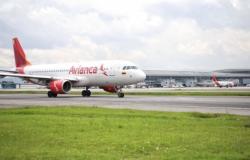It was last April that the national government announced the opening of imports for basic basket products. At that time, they stated that the intention of the measure was to counteract the price increases above inflation that were being recorded in food. At the same time, They indicated that the merchandise would enter the supermarkets gradually. More than two months after that announcement, different items of foreign origin are beginning to be seen on the shelves of San Juan supermarkets. However, in general, Their prices are higher than those of foods made in the country.
In a tour carried out by Tiempo de San Juan by some of the supermarket chains based in the province, it was observed that There are even dried pastas from foreign firms available for purchase. This is the case, for example, of some varieties of pasta from Italian brands. Among them, Barilla, Delverde and La Molisana. But, the prices of the 500 gr packages are $8,889, $7,300 and $3,450 respectively, while noodles from top local brands are sold at prices that vary between $1,020 and $2,600.
Another brand that attracts attention these days is Bonduelle, of French origin, which offers canned vegetables. Among them, you can see cans of beans for 220 gr at $7,050 or those of beets in cubes at $4,735, when the same product from a local brand can be obtained for $1,195.
image.png
As for the canned ones, You can also see a large number of products from the Ecuadorian brand Bulnez, which offers, for example, tuna and mackerel. In this case the costs are usually below local production.
image.png

As for the tomato sauces, jars of one of the Italian pasta brands, La Molisana, appeared, which can be purchased for $3,900 for 600 gr. Meanwhile, the price of the same product made in Argentina is around $1,700.
image.png

Foreign coffee brands are also repeated. Starbucks ground coffee per 250 gr, of Colombian origin and produced in the United States, has a value of $17,550. Meanwhile, the Nescafé package of Uruguayan origin costs $13,400. In contrast, a bag of Bonafide coffee of Argentine origin costs $5,600.
image.png

And a detail that draws attention is the return of tube fries, which had disappeared in supermarkets. Pringles packaged in cans and arriving from Brazil cost $4,579, for 109 grams.
image.png

Beyond these additions, government authorities expected that, over the months, the supply of imported products would continue to increase. Officially, They had detailed: “The expectation regarding the effect of the regulations on prices would take about 90 days.” At the same time, they stated that the opening scheme should be implemented “little by little.”











